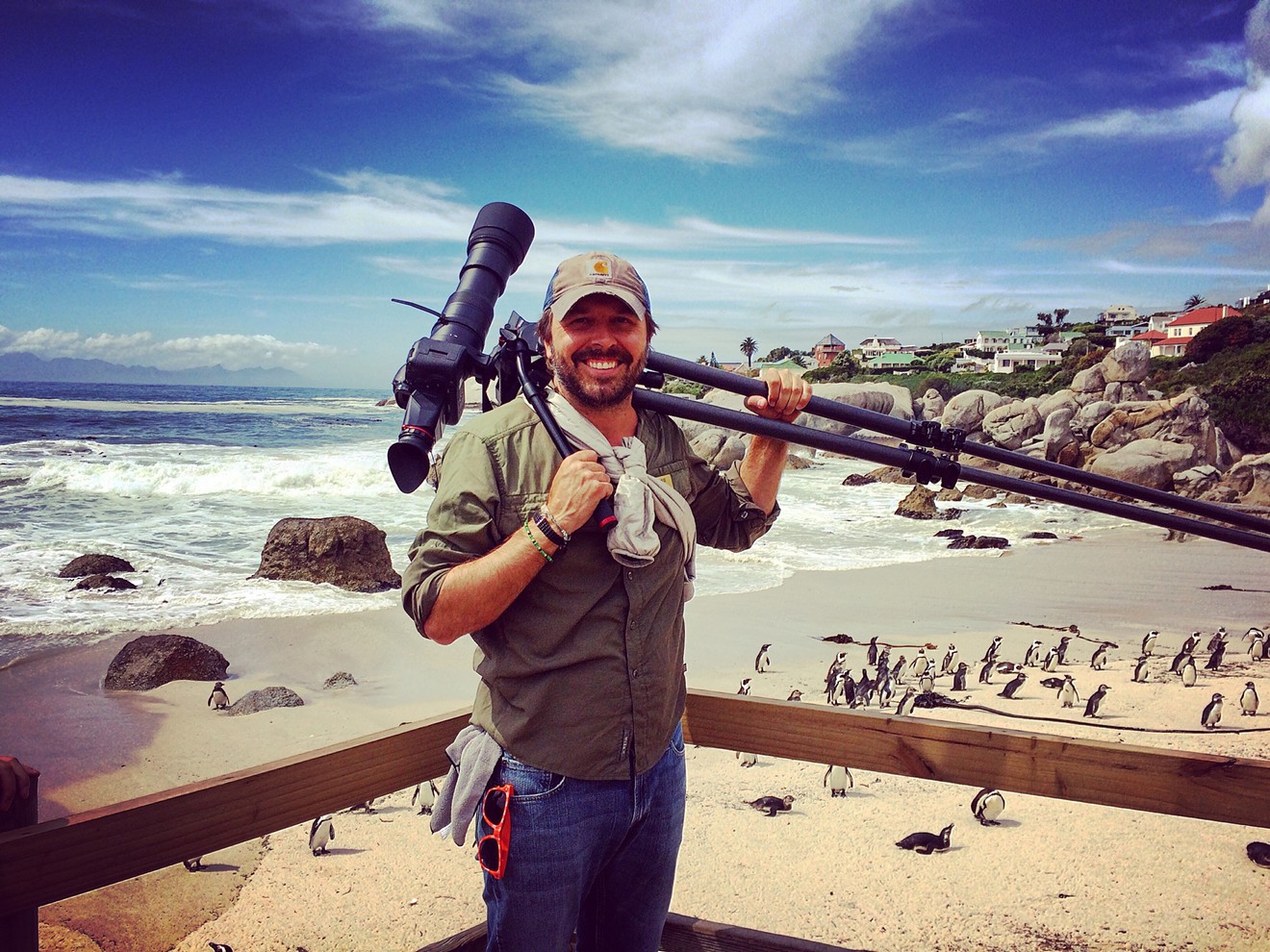The 2019 “Portrait of the American Traveler” revealed that 24% of millennials have used a travel agency in the last year and the same number intend to use one in the next two years. For comparison, the annual study by MMGY Global reported that 12% of baby boomers and 10% of Gen Xers worked with a travel agent recently.
Somewhat surprisingly, online travel booking sites like Expedia and BookIt haven’t spelled their doom. The one-size-fits-all tour company Thomas Cook may have recently gone under, but the industry is expected to grow overall — from $113 billion in 2017 to $127 billion by 2021.
A small chunk of that success is made up of independent agencies in DFW who say their white-glove service and bespoke experiences have allowed them to thrive in the internet age.
Lisa Sisk, owner of Sachse-based LCS Travel Services, didn’t even start her business during a very auspicious time. “We’ve been in business for about 10 years,” she says. “It was still the recession.”
Back then, Sisk was working full time in an IT job that she didn’t love, and she started the travel business as a side gig. “The one thing I really enjoy is taking vacations,” she says. “I wanted to see how I could turn that into something.”
In a short time, she’s been able to make it her full-time job and hire two part-time employees.
In the beginning, Mexico destination weddings and honeymoons were Sisk’s bread and butter. Now she sees a lot more social groups, birthday trips, anniversary trips and multigenerational family trips. Europe makes up about 40% of her business today, and she sees destinations becoming more exotic, like Costa Rica.“We refer to ourselves as travel specialists, but we don’t mind travel agent at all — it’s what we’ve always gone by. But I think ‘agent’ might sort of imply that we are order takers instead of advisers.” — Casey Carr
tweet this
Sisk’s phone rings the most in the beginning of the year when people are past the holidays and starting to think about spring break and summer vacations.
“We stay solidly busy January all the way through into May,” she says, adding that there is a bit of a lull in the summer, before business picks back up with fall and holiday travel.
Casey Carr, general manager of Sharon Carr Travel, agrees that the first quarter is the busiest time of year. “It’s referred to as ‘wave season’ in the travel industry,” he says.
The agency is named for Carr’s mother, who founded it 50 years ago. Sharon Carr Travel books everything, but they’re particularly known for their group tours and cruises, which they promote on the radio through a decades-long partnership with 98.7 KLUV.
Europe is Sharon Carr’s most popular destination, particularly Italy and river cruises. But Carr says Alaska and Africa are also popular. Their African safari is one of his favorite offerings.
“We send people to Rwanda to trek with the mountain gorillas often after their safari,” he says. They are big on animal encounters and arrange them all over the world, whether with pandas in China or penguins in the Galapagos.
Both Carr and Sisk say that referrals are their biggest source of clients today, but Sharon Carr Travel is still on air with Jeff Miles, and Sisk says she sees some traffic from her website and review sites like Yelp.
The internet has impacted the way Sisk and Carr both do business, but in many ways it’s for the better.
Carr says he noticed a dip in their business during the early 2000s when online travel sites proliferated, but it bounced back long ago.
“A lot of brick and mortar agencies closed and many people moved to home based,” he says. “But that pendulum has been swinging back for the last decade.” (Sharon Carr Travel offices are in Far North Dallas.)
For Sisk, the challenge has been more about figuring out what her own online presence needs to accomplish.
“If people go to your website and search for things and they don’t necessarily like what they see, then they might move on and never talk to you,” she says.
Sisk has learned not to try to compete with the amount of information provided by booking sites. Instead, she provides general information about her services, destinations and the benefits of using a travel agent.
This distinction often ends up being her best advocate. Both Carr and Sisk have heard from more new clients over the last few years who have decided to use a travel agent because they’re overwhelmed with the options available.
“They go online and they can spend hours scrolling through resorts in Mexico trying to figure out, ‘Which one do I pick?’” Sisk says.
“The volume of options literally makes people less happy with what they are receiving,” Carr agrees.
While Carr says Sharon Carr Travel’s core demographic is closer to 35-65 years of age, Sisk’s experience backs up the statistic that more millennials are seeking help with travel. She says young people are telling her they’re busy and tired of constantly polling their friends and reading reviews.
“They are the ones that you would think would be least likely to use a travel agent but surprisingly, they love using travel agents,” she says. “They recognize that they can do it but they’re not the experts.”
In a best-case scenario, DIY travel booking can make it easy to craft almost any type of trip for cheap. But Carr says travel agents appeal to people who aren’t willing to accept the risk that comes along with that.
“It’s easy to get burned these days, especially with Airbnb and other home-share apps,” Carr says, citing his own up-and-down experiences with these sites.
Especially when it comes to once-in-a-lifetime trips, Carr finds that some people just aren’t willing to gamble on doing it themselves.
“When someone is spending $5,000 to $20,000 on a vacation, I think people just understand the value in working with a professional instead of clicking ‘pay now’ at a travel warehouse,” he says.
One of the benefits of working with a travel agent is expertise. Carr says before their agents are allowed to work directly with customers, they have to reach certain benchmarks and prove their depth of experience.
“That is the value of a travel agent,” he says. “Our expertise lies in destination knowledge and product knowledge.”
Travel agents are even moving away from the term and toward new ones that reflect this expertise.
“We refer to ourselves as travel specialists, but we don’t mind travel agent at all — it’s what we’ve always gone by,” Carr says. “But I think ‘agent’ might sort of imply that we are order takers instead of advisers.”
A big part of a travel agent’s training includes traveling to the destinations they sell. Carr says their Africa trips are a product of 17 or 18 trips to the continent.
Sisk takes at least one trip every year to cover the major destinations her clients request. “It’s really important that a travel agent actually does get out and see,” she says.
Sometimes these trips are free, courtesy of tourism industry vendors that are hoping to generate business.
“We are the front-line sales force for the entire travel industry,” Carr says. “That is why they call on us all year long and send our agents on ‘fam trips,’ or familiarization trips, to learn everything about their product and sell it.”
Many travel agents make their money through commissions, which means that going through an agent doesn’t always cost more. “Our prices are very similar to what you find online,” Sisk says.
“There is a persistent misconception about travel agents, that you are paying more to use us, or that we try to steer people to our preferred vendors, and that all we care about is closing the sale,” Carr says.
Both operate on commission, and Carr says Sharon Carr Travel thrives on repeat business, so it’s in their best interest to only recommend products and services that they know will actually fit each client’s needs.
Agents who don’t make a commission do charge fees. A 2018 survey from Host Agency Reviews found that the median flat fee for consultation was $75 among agents who charged.
But some people find these charges are worth it. In addition to the attentive service, there can be other perks to booking with an agent.
Dallas-based social media strategist Sa’tori Ananda likes the convenience and flexibility of working with a travel agent. She uses them from time to time and is working with one right now to plan her upcoming wedding.
“We get options like refundable tickets, and if the price drops they can honor it,” she says.
Ananda says her travel agent can also throw in freebies that make the experience a better value.
“On a cruise they generally award you on-board credit for booking with them,” she says. “They can also guarantee that our party sits together at dinner.”
In addition to on-board credit, Carr says other ways travel agents can sweeten the deal include Champagne in your room, free gratuities and free upgrades.
For Sisk, the benefit that has made the biggest difference to her clients is the ability to pay shortly before travel instead of at the time of booking.
“When you go online and you look at Expedia, everything you see is a published fare,” Sisk says. “When you purchase your package, you have to pay in full at that time.”
Because Sisk deals in bulk fares, she says she doesn’t have to receive full payment until 45 days before travel.
“That has been a big game-changer because they can work it into their budgets,” she says. “And they can afford to do a little bit more ’cause they’re not waiting until the last month or two.”
Sisk and Carr are optimistic about the future of travel advising. Sisk even has a prediction. “I think you’re going to start to see more storefronts again,” she says.
Sisk is presently home-based, as are most travel agents today. “There’s no overhead when you’re home-based, which is nice,” she says.
But she finds herself frequently traveling to clients’ homes for meetings. “A lot of them require that face to face and they want that touch,” Sisk says.
Last year, she experimented with opening a physical location in an office building, which she feels gave people peace of mind even when they didn’t stop by. She gave the location up due to a move but plans to find another one soon.
“A lot of people just would see an address and call and be comfortable, just as long as they know that you’re out there,” she says.
More than free Champagne, Sisk and Carr attribute the resiliency of their industry to this desire for personal connection. Their clients value having someone get to know and look after their specific needs.
“It’s about getting to know their travel dreams and all the things that they want to do and adding to that year on year,” Sisk says.
“Our role is to tailor a vacation to the specific wants and needs of the individual, and then manage every step of the reservation until they are home safe and happy,” Carr says.
Of, course this also means that if something goes wrong at 3 a.m., their clients know exactly who to call.
“There’s that comfort level in knowing that they can text me, they can email me, they can call me at any time and I’m there for them,” Sisk says. “You won’t get Expedia to do that.”












